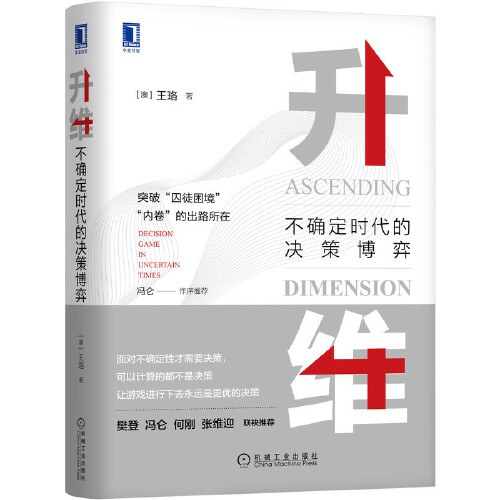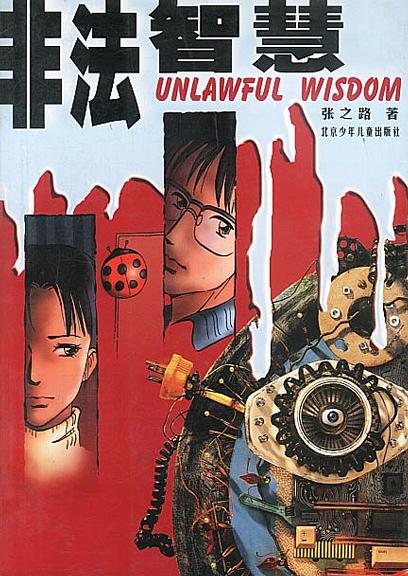
《升维:不确定时代的决策博弈》决策博弈:升维应对不确定时代
1
0

独行侠 2023-05-25 11:16:42
After experiencing the respectable resignation in April, although anticipating the feeling of unbearable lightness of being, the emotional changes were subtle and intense, unpredictable. A new anxiety started to spread unintentionally, not related to the economy or external pressures, but an internal feeling of just skimming the surface of life, eating and drinking, scrolling through social media, eating spiceless Sichuan hotpot three times in three days, staying up until midnight watching identical makeup tutorials on Xiaohongshu, thoughts constantly plaguing my mind, looking up hairstyle options in the morning and browsing for short skirts on Taobao in the afternoon, planning trips that were unattainable during my working period, a "freedom" that was not truly fulfilling after resignation. I realized the need for change and planning, as this chaotic period of resignation was not the "settlement" I desired, it was a waste of time. I began to plan my vacation, cultivate good habits, set goals and expectations for myself, to make this "stay-at-home" period meaningful and fulfilling.
Firstly, my uncle gave me a reading list, having diligently read many good books regarding growth, finance, philosophy, etc., with one of them being "Upgrading." Even before beginning to read the list, he conveyed this book to me and insisted I read it as soon as possible. This was perfect, as I did not need to exert energy in choosing, I could read one book straightforwardly and see if it could alleviate my anxiety, and absorb something new. When I initially read the preface, it was daunting, the content was esoteric and abstruse, and it mentioned concepts like game theory, bounded rationality, and tacit knowledge, which intimidated me, making me wonder if the book was being overhyped. But as I delved further, especially when I was introduced to the concept of tacit knowledge for the first time, I felt it was wonderful, a book about the truth.
All of the background information mentioned before was to display the unique meaning this book held for me during a special period of time, and to share it with others. Due to the books complexity and precision, I have decided to extract some great quotes, and provide my personal commentary and thoughts.
-Chapter One: In this information age, we cannot hope to control all information, we must understand that tacit knowledge governs valuable things, and things that can be articulated and imitated will ultimately be replaced. Social media appears to have a lot of information, but the more we see, the more useless it becomes. We must still focus on valuable things.
-1. Knowledge is dispersed throughout everyones minds, one person, no matter how intelligent, cannot grasp all knowledge and process all data, this is information asymmetry.
-There is always a high degree of information asymmetry in developed economies, and as division of labor becomes more profound, the asymmetry becomes more severe. Although connections through the internet have made some knowledge symmetrical, each connection signifies more asymmetrical information because of more information coming from each node.
-2. Our thinking and expression are ultimately restrained by the inarticulable tacit knowledge. Unique and inarticulate information comes from individual experiences that cannot be fully replicated by others, aside from its spiritual temperaments and connotations. It is manifest through class discussion, through individual behavior, and through communication, but it cannot be depicted and imitated precisely. Jobs infused his spirit into a mobile phone and conveyed the beauty of life he experienced to the world. That moment, you were touched by Jobs spirit and inarticulate knowledge.
-3. Our decisions are primarily determined by our values and intuition, which are inarticulable things. Any decision or transaction consists of an inarticulable part. In business transactions, its not only about understanding oneself, its better to understand the value cognition of the other party for the transaction. In many areas, the path to excellence is not based on precise calculation, but on vagueness and ambiguity. If someone tells you that he precisely knows something, we can assure you that you are talking to a no-precision person.
-Chapter Two: -1. In fact, people have bounded rationality, and every individuals bounded rationality is different. Therefore, theories that approach reality must accept that people have bounded rationality and study the economic behavior patterns of bounded rational people. It is not just calling for absolute rationality. Behavioral economics studies the cognitive laws behind the economic behaviors of normal people, that is, the economic behavior of bounded rational people who do not possess complete rationality. You cant achieve absolute rationality, and neither can your opponents or partners.
-2. Expression will affect our perception of gain and loss because our cognition is influenced by the information input mode that constructs communication. Communication is building a way to influence the psychological effects of others, and as such, it is important to use a psychologically effective style of influence when communicating.
-3. Most people admire practical leaders, and many leaders also like to use actions as a substitute for decision-making. This is partly due to their showmanship, and partly because acting will give them a sense of psychological control, the illusion of control, as if everything will not be out of control as long as they act. But everyone has a very limited influence on the world. Many times, taking immediate action does not mean good management.
-4. There was a popular saying in the past that "everything happens for a reason." But fate or karma is just a misunderstanding of probability and causality. The corresponding worldview should be probabilistic thinking, and it should then be a lifelong pursuit of learning, using what we know about the world to predict the most likely outcomes and make the best decisions in light of that information.
相关推荐
萤火谷的梦想家
艾莉森•麦吉出生于1960年,是美国《纽约时报》畅销书作家,同时也是大都会州立大学创意写作课的教授。她的作品被翻译成20多种语言并出版,也曾被提名普利策奖,并获得苏斯博士奖金奖、克里斯托弗图书奖、美国 [美]艾莉森•麦吉/[美]克里斯托弗•丹尼斯/绘 2023-03-27 16:50:25鬼马女神捕1·绝密卧底(上)
腹黑凤凰vs毒舌鸡妖——蓝翎:“小姬,跟我去人界吧!”姬十四:“干吗?让人宰了我做小鸡炖蘑菇吗?”蓝翎:“不啊,让妖怪宰了你做小鸡炖蘑菇更气派。”凤凰蓝翎和鸡妖姬十四生活在无忧无虑的灵界。他们的故乡叫 郝天晓 2023-04-17 00:22:47© 2023-2025 百科书库. All Rights Reserved.












发表评价